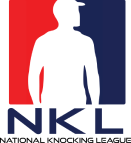Ad 00:06
This episode is brought to you by the D2D Business Bootcamp, the number one event for business owners and leaders in the direct sales industry. Come to our two-day boot camp and learn from Sam Taggart and the D2D experts who have consulted over 200 businesses on how to increase sales, get more recruits, become a better leader and streamline business systems. Go to bootcamp.thed2dexperts.com for dates and location. Limited tickets available. Go to bootcamp.thed2dexperts.com and reserve your seats today. This episode is brought to you by the D2D business boot camp, the number one event for business owners and leaders in the direct sales industry.
Sam Taggart 01:14
Hello, everybody This is Sam Taggart and I’m here with one of our vendors us accounting this is a this is a cool podcast. What is like?
Mason Warr 01:22
Two years ago
Sam Taggart 01:23
Two years ago we’ve worked with Zach and now Mason’s on it. And we’re talking about tax today. How do you guys like you obviously get like so high debt.
Mason Warr 01:38
We’re probably the only guys who are like excited about taxes. Yeah, that’s true.
Sam Taggart 01:43
So if you’re listening this podcast, this is interesting. So at D2DCon, you know, why do we have CEOs accounting company this year in January and why have you guys been so niched into this door-to-door world, you and Mason sold for eight years doing door to door use Zack and his team to help do taxes. And how many reps Do you think you manage in between?
Mason Warr 02:08
I don’t know. Probably 100 or so total that I managed?
Sam Taggart 02:12
Yeah. And you’ve seen guys making tons of money, and then their sales dudes and they have nothing to do with the money. Yeah, they don’t know how to keep the money. From April. They’re like, “Oh, I made they made some great 100. Can I get an advance?”
Mason Warr 02:24
Yeah, that happens all the time. They’re like their cash poor after every season?
Sam Taggart 02:29
Yeah. Like what? So this podcast is about how do we make money? We obviously have a lot of those podcasts. How do you keep that money? How do we be smart with the money? How do we not like be that sweet girl that goes and buys a BMW, and then cash poor broke and then asked to do something again and again and again. And anyway, that’s what I’m excited about. So awesome. I mean, they just filed our taxes, guys to put things in perspective, but like Valley, you guys, I was gonna pay over six figures in taxes. I said, wave your magic wand. And they just pulled some magic strings. And if you’re smart, you can drop that down to…
Mason Warr 03:08
40 or do something which is a much better, better number.. And yeah, everybody should know Sam’s books and taxes were so much work, seven companies or something. So yeah, it’s we spent more hours on your taxes than any account membership. We’ve got a team a team dedicated door-to-door.
Sam Taggart 03:31
And I appreciate you guys. I was like, “I’m not your normal business. Yeah, there’s. Anyway, um, so I’ve loved to work with these guys. So tell us a little bit about how you started CLS I mean, it’s kind of a newer brand. Yeah.
Mason Warr 03:51
So CLS is Circle of Systems. That’s the idea I always had you know, I was at JB before where we used to do your taxes and while I was there I was formulating an idea to to have for door to door guys a one stop shop for everything that they would need on the financial side of things because they’ve got stuff you have basically you with all your door to door stuff have everything covered on the sales side on on multiple other avenues that basically a one stop shop for every door Yeah, so on our side we are does all financial, so that I really like the idea of doing not only taxes but financial advising and things like that to help people not only you know, save on taxes, but then to also put that money to work. And
Sam Taggart 04:43
You where like, what was it Airbnb you’d like syndicated a few different finance real estate…investing…
Zack Basset 04:51
Yep, through arrived. We’ll be doing a lot more through our own company this year. Me and Mason will be putting those together for probably Hopefully by July, August, right around there, that’s when we’ll offer to all of our clients the ability to invest in multi unit properties with us, because then you’re getting the high end tax strategy of cost segregation with accelerated depreciation, which means you’re getting a triple benefit, because not only are you getting the cash flow, which they normally cashflow pretty well, but you’ve also got the appreciation of the property, which you know, properties now it’s crazy. And then you’ve also got the huge the biggest benefit, which is the tax savings, because you’re taking essentially 30 years worth of depreciation, and taking it over five to seven years, using that code that accelerated depreciation using using cost segue. That’s the code we use. And that allows you to get those huge returns where you can, you know, triple your money over five years. And that wouldn’t be a crazy outcome. Yeah, you know.
Sam Taggart 06:01
And I did a big multifamily this year in January. And I said, Hey, come up with my breakdown my cost segregation. Yeah. Yeah. What is the schedule? Yeah. And yeah, cuz I was trying to plan I was like, how do I need to buy more? Right? Yeah, I know, what my next two three years look like? And, you know, I think a lot of people they don’t, they’ve never really teaches that.
Mason Warr 06:24
Yeah. And I found, and I was just thinking about this, there are a lot of these salesmen especially they’re so good at emulating the wealthy in acquiring money. But they typically don’t follow through when it comes to saving money. When it comes to the tax savings, the wealthy understand taxes, and they usually pay someone to figure out, you know, lawyers and accountants to figure it out that stuff for them. So they’re able to keep that money in their pocket. But a lot of door to door, guys, they become cash poor, because they spend all the money that they’re they’re getting, they’re not putting it into tax shelters. And then like you would have, if you didn’t have a good accountant, you’d be spending six figures just in tax alone. But if you can keep that money, then it allows you to buy properties and do other things to build assets. Yeah.
Sam Taggart 07:07
So yeah, series of question. People get in the mindset, you’ve obviously a lot more. I mean, how many door to door people? Do you think you’ve serviced over the years in finance? 10,000. Yeah, Like what? Like, it’s no new world. Like, it’s so funny. I had a guy call me those days, like, hey, I need a new tax person. And I was like, Well, what are you looking for? He’s like, well, I’m door specific. One of them were aggressive. And I was like, Oh, cool. Yeah. And, but but I think that there’s a difference between any other normal accountant that’s like, hey, I’ve been looking at the books of whether these verses reports of a doctor or sales, independent contractor, but one of the things that you’re dealing with these people all the time, you probably hear the same phrase, and I want to talk about this phrase, oh, let me buy that to tax write up. Because they’re these young men and nine cats. What do you say to that person who’s like, Oh, I’m just gonna buy this truck, I’m gonna buy this. I buy these clothes and buy this computer because I want it. It’s a tax write off.
Mason Warr 08:08
Typically, we get real quick. So we get people at the dealership calling us saying, hey, should I buy this truck? Or should I buy this vehicle? And we’re like, if you’re going to buy this supercar, this mean, a Mustang or whatever it is that you’re going to buy, it’s probably not going to give you a good tax deduction. So yeah, go ahead.
Zack Basset 08:24
Yeah, yeah. So what they would what he would say is you need to tax plan prior to going to the dealership. So you know, we I’m always available by anytime they can go into Callen Li book with me, it’s 50 bucks for 30 minutes. And I basically will sit with them and coach them on exactly what do you need that vehicle? You know, not just for tax purposes, but I can talk through, see what else they have. I know about door to door I know about recruiting. And I can say look, yeah, right now you don’t need that. If you make this move. Instead, you’re going to compound your net worth instantly and put yourself in a spot for next year to where you can then compound again, if you compound year after year, your net worth, before you know it, you’re able to get these massive loans from banks. And why wait, why wait and do that for 510 years down the road when you could make it happen in three years?
Mason Warr 09:18
Yeah. And we typically don’t recommend somebody make a purchase and spend money on something they don’t necessarily need. Unless it’s going to be some sort of tax benefit. Because some guys some guys think that something has a tax benefit. That’s not
Sam Taggart 09:33
They don’t. Yes. Yeah. wanted. Yeah, it’s true. Yeah. You see people building liabilities. willy nilly? Yeah. Yeah, the
Zack Basset 09:42
Thing is don’t let the tax tail wag the dog. And that just means don’t do something just for the tax purposes as far as spending money, because yeah, I might be in the you know, you might have 37 to 42% total taxable rate. But does that mean It, it’s good for me to go spend 10 grand on something that’s going to be worthless in a year. No, I’m still losing that additional 5800 sure I get the $4,200 expense, you know, deduction, and it saves me that much. But I’m still out 5800 because that’s going to be worth nothing in a year, you know, and there’s many things like that where you own it for a year, and it’s not worth anything. Now with trucks, that is the one area where I might say, look, let’s go over your numbers. Okay, you’re at 150 and taxable income, you want to get rentals next year. Okay, well, so let’s not go any lower than 150. But let’s, uh, let’s buy us $80,000. truck, if you buy it at $200,000 truck, we’re going to lower your taxable income from 150, down to 70, or 80,000. And now you Oh, you know, 15,000, less in tax. But for purposes of getting the loan, you still show 150k in profit, because you add back that depreciation.
Sam Taggart 11:06
So same thing with real estate. I think a lot of people in other areas, like real estate, like I’m sure they’re very negative real estate income. Yeah. You know, and you’re like, well, how am I supposed to qualify for loans? It’s like, Well, no, that’s all because of the appreciate mediation. And they don’t account for that. So that’s something very important for people to know, tell you. But then the opposite. Let’s go the opposite of that. The first time I’m trying to get into real estate, like, hey, I want to go get a loan. And I for two years written off everything. Yeah, I pay like $200. In tax. Yeah, exactly. Yeah. No, it seems like right. When I started, same thing. So talk to us about that, like, Yeah, what would typically happen to a sales guy when they’re trying to get into real estate? How do they
Mason Warr 11:51
Yeah. And I think that’s why we typically say come to us with your five year plan of what what are your goals moving forward, because a lot of guys, they’re like, I just want to save as much on tax as possible. But they’re not telling us that they want to get into a property The next year, and they’re not gonna be able to show enough income. And you could put a bigger down payment, but most likely, you’re going to need a credit partner or money like a partner who has, yeah, cosigner. And that’s tough for a lot of guys, because they don’t want to do that. But sometimes that’s that’s kind of, there’s pros and cons. Either way, you can pay way, way less in tax and keep money in your own pocket. Or you can you can pay a little bit in tax and show more income for the bank, so that they’re like, okay, I can put you in a townhome, or, you know, a first rental property or something.
Sam Taggart 12:33
So what number do you know, kind of numbers off top your head of like, I need to show I make 60 grand in order for me to get a 200,000
Zack Basset 12:42
Around around 40,000 m w two income to get 200k. But um, remember, these guys don’t have w two income, other than the small amount they get from their escort paying themselves, and they’re gonna disregard that w two income. So you need to have two full years of S corp income, or 1099 income of in the 60k profit range to get the 200k. So it’s not easy when that gets you basically nothing. Yeah. Yeah, 80 to 100k that goes up by quite goes up quite a bit quite fast. So yeah, at 200k you’re in a good spot.
Mason Warr 13:26
But when you start putting money into things like solo 401, K’s and you put money into, you know, if you do buy a vehicle that money is still showing. And if you put it into a retirement account, then it’s still liquid and Kuwait likes that. Yeah. Because then it is collateral.
Sam Taggart 13:41
So yeah. So let’s talk about like you just said escort, you know, lsds like one of the main strategies or, you know, 1099 a person is kind of setting up an escort. What does that mean? Yeah,
Zack Basset 13:58
Yeah. Okay, so, an S Corp. Yeah, that’s basically all that’s been my life for the last 10 years.
Sam Taggart 14:09
Yeah, if you’re new to sales, if you’ve never heard this, this is a very important lesson.
Zack Basset 14:15
That’s super, super important. Because, yeah, if you profit over $4,500 in 1099 income, that’s, that’s nothing right. You profit more than that. You’re guaranteed to save money by having an escort even after paying all of our fees to set up even after paying a year’s worth of fees. With break you can prior to break even Yeah, compared to going anywhere else, even if they do your taxes for free using any other strategy other than you know if they’re lying, we can’t beat that. But um, yeah, that doesn’t don’t condone. Yeah. So um, but yeah, as in the escort was created by, you know, Congress to create something that was would help to stimulate the economy. So they’re saying people don’t want to start a business because the taxes are way too high. So let’s make a new type of business that will entice people to start a business. So they they said, Yeah, S corporations will pay zero self employment tax. That was a first, then every buddy in their dog started setting up an escort that was self employed. And the IRS said, Okay, this wasn’t really what we had in mind. So now we’re gonna make it so every self employed single member LLC, S corp, has to have at least one employee, that employee would be yourself. So like, I have a mine is Kermit and piggy, kind of a silly name for me and my wife’s LLC. But, uh, yeah, I’m the employee. So if I made $100,000, I’d have to pay myself a $20,000 wage. Now I pay tax self employment tax on that wage of 20k instead of on the 100k. And what’s the difference in tax bracket and percentages on that kind of an example? So yeah, so so the self employment tax is 15.3% no matter what. So that’s 15,000 something 100,000? Yeah, or, or you can do $3,060. Total.I just saved myself Cool Girl, Grant.
Mason Warr 16:22
Well, by just restructuring your LLC.
Sam Taggart 16:25
I didn’t have to buy a truck to save 12 I didn’t have to go spend that, like it’s just restructuring.
Zack Basset 16:30
Yeah, being set up correctly
Mason Warr 16:37
Now, you’re going to show less income at that point. So that’s something to consider. But we can we can adjust. Because after your your expenses, then it’ll show how much income you have, right? And so you’ll have the wage that you paid yourself, in addition to any call distributions, dividends, or whatever’s left over after expenses. That’s what makes tax planning by far the most important thing that we do, right? If you don’t tax plan, and most of these guys go, Well, I’m not doing tax planning. That’s $50. And, you know,
Zack Basset 17:07
That makes me sick, really? Because, yeah, exactly. Yeah, they tip $50 to their waitress, you know, when they go out to eat and to look cool in front of their friends, but they won’t pay me $50 to tax plan and save them 10,20, 30,40 100,000 200,000 whatever it might be. So to me, it’s a joke, you’ve got to be paying for tax planning, whether it’s an hour a year, or like most of my clients that make over 100k, they’ll do 30 minutes to an hour, a month, or every other month with me. That way, they’re not only getting tax planning, book coaching, and I coach them on how to compound their network faster than anybody else could tell them now. That’s awesome. It’s something that we’ve read, you know, to us, it’s only a year old. Okay. So it’s something that we recently started offering the last like three or four months, but um, it’s really picking up steam, especially with our podcast, the compounding interest podcast, coming out. Yeah, we should have it posted here real soon. But we’ve shot the first two episodes and three, oh, yeah. three episodes, we do another one tomorrow. And yeah, with that coming out, I think it’s gonna help, hopefully open the eyes of people and see the value of, you know, compounding your net worth and planning.
Sam Taggart 18:28
No, I. So I’m with my buddy the other day. And now that we’re talking about compounding interest, and you know, one of my favorite books is the compound effect. Exactly. And close friends. Like childhood best friend. And he’s like, I’ve got this house is my investment. And then I’ve got some Robinhood money. But I was like, how much do you have sitting in the bank account? Yeah, he works. Well, gonna get on What do you mean? You know, couple six figures. Like once Yeah, why are you not getting that? We’ve been side by side throughout this like journey. A lot. Like, I gotta move in. Love. Oh, yeah. And I just remember, I was always like, how I put my money to work, I guess.
Mason Warr 19:24
It goes up and down.
Sam Taggart 19:26
Yeah, yeah. It was like, he’s like, what? Yeah, if I have more than $20,000 in my bank account, I want you to like, I’m like, Oh, yeah. Buy a house. Yeah. Something. Yeah. You know, I just studied you know, I in case of a rainy day, I’m like, what kind of rainy day? Yeah,They wouldn’t do anything.
Mason Warr 19:43
Well, and it’s funny because the closer I’ve gotten with Zack, the more He’s like, okay, we’re gonna put money into this and then we’re going to put money into this and then we’re going to put money into this. Like in his mind, he already has planned out how every dollar basically besides like our living expenses is going and it’s a huge benefit. Having a friend who understands tax. And again, the goal is to emulate the wealthy but not just in the earning potential, but in the saving potential. And you know that that right in their, in their on their right hand is their tax attorney or their accountant, right. They’re telling him exactly how to save and spend their money.
Sam Taggart 20:17
So let’s talk about invest. So like the swing here, so that extra 100,000 I think I saved like $100,000. Last year. So my 100,000 are giving to the government, or just next year $100,000 at a 10% return on the money that now is $110 compounded now it’s another 130,000 rounds. End totally, like over the next 10 years that $100,000 us, right, yeah. Then just customer $1,000 in tax, just give to the government, but the opportunity cost opportunity cost. Yeah. And I think a lot of people don’t count, or weigh that compounding opportunity cost for one that expenses into money when it was done on tax. And I think you probably have seen a lot of examples of, you know, fast forward five years Fast Forward 10 years. Wow, where you’re at? Oh, yeah.
Mason Warr 21:05
Anyone believe how many people are that are extremely successful, end up with $0 because they spend it on things that that you know, that are you know, that that are not beneficial, that are ways that aren’t going to grow them. There’s so many guys who are like, man, they must be living so well. They drive all the fancy cars, they have the nicest clothes, they have all these things, yet they don’t have anything that’s there’s no assets. It’s all liability.
Sam Taggart 21:31
When everybody does this door doors job or direct sales or financial freedom. Yeah, like, hey, I want to do this to be financially free. Yeah. And they never get there. I see financial freedom. Yeah, it’s kind of just you won’t get there. Living the normal lifestyle. Yeah, and and i think financial freedom is being able to live within your means. But let your wealth compound way above you’re not like, like, what happens is people’s lifestyles changes their income. Yep. And I go, well, you’re syncing spa. Yeah, just drive a different car. Yeah. Still stressed, you’re still trying to make repayment, you’re still trying to, you know, like, that that is so bondage that is such an incarceration. Right? And so do you find that you found any strategies that have helped people alleviate the stress of finance and to help alleviate and create more financial freedom? Like Have you seen any good vehicles for our industry? Yeah, they’re Zack, what do you think?
Zack Basset 22:29
Yeah, so, um, you know, there’s a lot of good spots for it. I think. I think number one, that you’ve got to have your 401k growing for you. Why? Because that 401k it’s not just like putting your money in Robin Hood. You know, you’re gonna make money 10%, whatever. Think about it. But if you think about it, it it’s a bit Let me take a drink real quick. This is my favorite topic, by the way.
Sam Taggart 22:58
So 401k is rather…
Mason Warr 23:01
Yeah, what’s it let me ask you this? What’s the average age of the door to door rep that you found?
Sam Taggart 23:09
24
Zack Basset 23:12
Yeah. So first off, when you when you put money into your 401k, you’re not just getting the amazing growth, that’s gonna happen in that account, you’re also getting an amazing tax deduction. So it’s one of the only places you can just put money in and instantly gain network. Because if you’ve got the exact same amount of assets, right, you put your cash into a 401k, your assets stay the same, but now your liabilities are less. So your net worth just grew, you can’t normally do that, put money into a house, your net worth doesn’t grow at all stays the same. So with this 401k, you’re, you’re getting that awesome, instant growth rate. But then you’re also getting the growth of the account. So you’ve got to do the rule of 72 to see what it’s going to be. But let’s say you’re let’s say you’re 24, right? And you’ve got 41 years till you have to pull from retirement, because I say half because I want people to get their their mind their thinking, right? You don’t when you don’t want to pull your money out of retirement. You want that money to be your compounding machine for until you’re dead. So that’s how I look at it anyway. So you go like this. You say what, what rate do you hope to hit? We hope that through fortress financial, our financial firm, we hope that 14% annually, well, let’s say you hit 12. So we’re going to go 72 divided by 12. That gives you six, that means that your money is going to double every six years. So now we go 41 because you have 41 years. So 41 divided by six, that means your money will double 6.83 times. So if we if you over the 40 over the 40 years if you do all you can to put in 30 grand that first year, let’s say you made 60 you do everything possible to put in 30. Watch what it does for you, you put in 30,000, your times two times two times two times two is 6.8. So just say like seven times two times two, times 1.83333. And you’ve got 3,519,000. That’s a one time payment of $30,000. And it’s going to double every six years and get that amount by the time you’re 65. Yeah, one time, that 30 grand turns into 3.5 million. If you if you had a 12% interest rate over that time, then yes, and that’s a mathematical fact. So it’s not like, oh, he says, it’s gonna make that much. If you’re making 12%, which is not real difficult, run it at 10% 1%. But you’ll still see that it’s, that’s compounding interest. Now, you got to see the difference between 3% watch what happens when you go 72 divided by 15, because we’re gonna make well over 15, you’re gonna make well over 15, because think your business is probably just about doubled every year, since he started. So you’re, you’re at 100% Plus, or at 100%. Plus, when you 16 next year over year. So if we continue to do cool things like that, think of the compounding behind this, but we go 72 divided by 15% gives you 4.8 means your money will double every 4.8 years. So now we go 41 divided by 4.8. And you’ve got 8.54. So now we’re going to take that 30,000 and go times two times two times two, times two times two times two times two times two times one point was a five, three. I thought it’s four but yeah, might have been. Okay. So that’s 10,982,000. Yeah, and the younger you start, the more it’s gonna double, the more times it’ll it’ll go through. So that’s the exact same amount of years just making 3% more per year. So, yeah, imagine if we did 70 million differences, it doesn’t 100 millions from 130 $1,000. payment, and he could continue putting more money in. Yeah, exactly. So it’s done through a 401k, you can do 19,500 plus 25% of your company’s compensation, which means your wage from your escort to you. So you could probably put in like 50,000 or so if married, then you can put an additional 19 five for your wife into the IRAs and, and traditional Roth IRAs. 6000 apiece. So really, most of the time I just say skip over the IRAs just do the 401k. Yeah, because you want to do bigger now.
Mason Warr 27:51
And a lot of people get confused Roth and traditional, right. The reason why you want a tax plan is because he can help you whether you need a tax shelter, or you need, you don’t need that much savings in taxes, so put it into a Roth, because then it goes in taxed, but taxes aren’t going to lower over the next 30 years, they’re going to continually rise. So in some strategies, it’s good to do Roth and others, it’s good to do a traditional meaning when you take your money out, you get taxed on it versus
Zack Basset 28:16
You get taxed on when you put it in.yyou get a tax break now or later. I like the tax break now, because of compounding interest. And that savings. Now, to me, the the time value of money shows that it’s worth so much more now than later, especially when you’ve got a great tax planning accountant with you, who’s going to help you to create a rental prop property Empire, which by the way, is not that hard to do. And so we’re going to do that. I mean, over five years, I can help you create a good little nest of, you know, homes, but try 20 years, we’re going to be able to get you 1000 units. And then by that time when you retire, you don’t it’s best that you had done a traditional IRA every year, because we’re gonna have so much depreciation from the homes that you’re buying the huge properties, you’re buying that yeah, that you’ll be able to pull from your 401k and it’ll be taxed next to nothing.
Mason Warr 29:11
And and if you’re using cost segregation, then you’re you’re you’re flowing through those properties every five to seven years anyway. So you’re just going to sell and dirty wood and 31 exchange on any property that you’re selling. So there’s, there’s, again, there’s infinite numbers of things that you can be doing. But if you’re not tax planning, it doesn’t matter. Because the only thing you’re doing is you’re preparing yourself to pay money. That’s it. That’s you’re just preparing yourself to pay money tax. So yeah, yeah, if you’re not tax planning, you’re preparing you’re having to pay Yeah, you are. Yeah, that’s it. So yeah, we found I mean, there’s so many cool things that were that we’re working on to theirs. We’re gonna start doing family management accounts. So we’re going to start helping people do this cost segregation on the rental properties or on their, their, their, you know, big units or their commercial buildings or whatever. There’s what else are we planning on?
Zack Basset 30:01
We’ll be doing those are so yeah to an offering different investments to anyone that’s a CLS client. Yeah. So that’s probably the biggest thing that we’re offering this year.
Mason Warr 30:10
is that you get Zach’s insight into that property and how to tax and get you a cash flow.
Zack Basset 30:17
And I’ll be putting together deals that are homerun deal. Because obviously, if it’s a homerun deal, we’re gonna grow like crazy. And how can I make sure it’s a homerun deal? Well, I can because if I do a multi unit property, or commercial property, well, we’re growing across the nation. So while we’re growing across the nation, we’re going to, we’re going to rent out entire two floors of a sixth floor, huge building here in Lehigh. And so it’s almost instantly cash flowing. So when I say I can make it a home run, that’s not just me saying that to get people’s money. It’s me knowing that and we will make it a home run. And people will make, you know, 40 50% year one. So, so yeah, big, big goals like that.
Sam Taggart 31:03
I love that. I love that. So let’s talk about budgets. I think that it’s a scary word for most sales. Accounts, you know, do you what have you seen as far as effective simple strategies or tools or things to help people be a little bit more savvy with how they spend their money, budget things? Give me tips for that kind of direct sales, business leader…
Zack Basset 31:27
Use an app use mint. cleaner, we recommend QuickBooks self employed app. But the one thing we can’t help with is overspending, addiction to spending. You know, that’s something that they need to get help for. Because really, that’s when people say, I need help with my budget. Really, they need help with spending. They just literally want to spend spend spend the coating?
Mason Warr 31:52
Yeah, yeah, the retail therapy is is is is real. Yeah, it is
31:56
So yeah, it’s an addiction. People go to, you know, spending anonymous and things like that. So, yeah.
Sam Taggart 32:02
What like, what are signs of because it’s not your typical diagnosis? accountant. Why? Everyday spent $200 on Amazon,
Zack Basset 32:14
I diagnosed two years ago. But you just continue to make more and more and more, so stay ahead of it.
Sam Taggart 32:21
I am. I’m an interesting spender. I spend different.
Mason Warr 32:27
I have a question. So how would you define a wealthy man? Like, if you had to define one?
Sam Taggart 32:35
I would say someone that is in control of their spending? Yeah. So the easiest way to define it is somebody who spends less than they make. That’s it. So you want to be wealthy spend less than you make, right? If you’re wanting to go buy something, go buy a cookie, rather than a, you know, $150 pair of Yeezys? Or are they they’re not even cheap. $300 pair of Yeezys or whatever, right? So a lot of guys, they think I’m just not having a good day, I’m going to go buy something. Well buy something like a Coca Cola.
Zack Basset 33:04
Rather than go for a run.
Mason Warr 33:05
Yeah, go do something that’s going to get you like maybe you could still spend that money without you know, destroying your bank.
Zack Basset 33:12
Go work at the homeless shelter.Do something that makes you feel good about yourself. Yeah. In the same type of way.
Sam Taggart 33:17
That feeling of I’m not? I’m not. Yeah, it’s probably where a lot of us yeah, have enough? Yeah. I’m not enough. Yeah. Self of like, I have enough.I am enough.
Mason Warr 33:29
And I think people just need to recognize that there are like, you know, mental illness is real. It’s something that that affects, you know, your ability to make sound decisions. And sometimes, you know.
Zack Basset 33:41
Every single person has that, they have something called Yeah, when everybody has challenges. I mean, yeah, my wife, she spends nothing. She it’s like, the opposite spectrum. I think she has something you normally like, no woman wants to spend no money on on clothes, like, she will. She’s the best, you know, she she literally will spend a few 100 a year. And that’s it. And it’s only because I, you know, I made her spend the 200 at a nice place, because she would have just spent 100. Like, she’s really good at it. But a lot of people just aren’t that way. And I think, you know, I think it’s good to have your accountant to help you. But like he said, like I was saying, I can’t help you. on that level. I am not a psychologist.
Mason Warr 34:25
I mean, there are things that we can say. Like, we do have bookkeepers who can help people put together a personal budget, right. And so typically, they’re saying I want a personal budget and this because in their mind, they don’t even understand how to budget. And I think the financial literacy that exists today is terrible. There’s no classes really that teach personal budgeting, or personal finance or taxation or anything like that, unless you go through a taxation program like Zack has, but even then it takes incredible amounts of discipline, and guys just aren’t disciplined enough. So it’s hard, especially when you’re making money. You’re making money.
Sam Taggart 35:00
You can say that Oh, it’s just one more sale and I have a credit card. I’m good to go. Yeah, by the time I make another sale and get my next commission check, I’ll have it paid off. I mean, it’s no big deal.
Mason Warr 35:08
And then you don’t get there. Yeah. Because you’ve spent it on multiple things during that pay period. Yes.
Zack Basset 35:14
Well, but so you asked about budgeting. As far as business budgeting? Yes, we help with that all day long through the bookkeeping services. I was kind of taking your questions.
Sam Taggart 35:24
No, I took it as personal for sure. But let’s talk about business though.
Zack Basset 35:26
Yeah, for business all day long. We can budget we can forecast. Yeah, if you want me to take a look at your p&l. First off, you’re going to need more than six months p&l. So you need to you need two years. So I can actually forecast right, I need to be able to compare prior years to current years. So a lot of times people hear this and here I can help forecast, it’s really hard when they give me three months of books. I can guesstimate, but a real forecast comes when you got prior year, two current year. So I can I can tell you what the next year based on, you know, how your growth is trending. So that’s something I love to do. It’s one of my favorite things to do is to forecast and and help create budgets. But um, yeah, that would go under our CFO service, which is a little more expensive, and, you know, just an hourly sit down to 50 an hour, but I sit in forecasts with people and then come up with a budget for the business, certain different items, you know, whatever they want.
Sam Taggart 36:27
Because it’s it’s scary. I mean, I’m a new entrepreneur, in my opinion, like, I’m learning that you’re like, you have seven I’m like, Yes, I have a lot of companies, and I still don’t know what I’m doing at the time. And but I think that’s where a lot of people, they, they’re maybe their pride, maybe their ignorance, I don’t know what it is. And I went through a phase where it’s like, whatever, we’re just make more and it works out, right. But like, I think a lot of times, we’re afraid to even look up, lift up the hood and get really analytical with all of the like numbers and Okay, this department, I’ve broken it into classes, different Chart of Accounts different like product and cost of goods sold, you know, a lot of like, what we do is like, oh, man, we need to, like, restructure this so that it’s like, I know how much I make on my events versus my coaching versus my, you know, university versus my this event. Like,
Zack Basset 37:17
That’s as easy as adding a new tag when the person puts in the revenue. Yeah. Yeah. So simple things like that. If you say, this is what I need, I can say, well, who’s putting in the revenue? This person is? Okay. Well, now when they put in the revenue, they need to tag it exactly as to what it was.
Sam Taggart 37:33
Yeah. Because it’s like, and it’s just that extra little click, it was for this. Yeah. Yeah. saves you. It adds more hours of sleep at night. Like it really does. I think that I lost many hours of sleep because I was like, I like collections. Another big piece. Like I was just like, I have hundreds of 1000s of dollars. I mean, build people just because I don’t even know like, and, you know, different expenses.
Mason Warr 37:57
I can’t tell you how many sleepless nights I’ve had thinking about. Okay, how are we even going to make payroll? Yeah, how are we like, as, as a business owner, you you, especially with employees, you’re like, Okay, I have to protect my employees first. Okay, I can take a hit this month. That’s okay. Right. And and you start kind of panicking, and getting those feelings of anxiety like, Okay, how am I going to make this happen? And it’s sometimes just as simple as making a few course corrections. But again, you have to lift up the hood to see what’s under there. So you and I do I able to look at the numbers and go, yep, we’re solid, we’re gonna be fine. And you know, he’s, he doesn’t know if my brain knows for sure. So he’s sitting there a little stressed. And then, yeah, we ended up being fine. But yeah, there’s several things we should have had in place. At the beginning, when we first started out, like a line of credit. That’s one thing I would recommend to people in the same spot as us. But at the time, I knew we didn’t need it. I knew where we were. I said, We’re fine. But we still should have had it. So it’s there in case an opportunity comes up. Like maybe you wanted to collab with us, and it would cost us 50 grand to do this one idea. Well, if we don’t have access to 50 grand, we’re out possibly an opportunity. Yes. comes up again. Yeah, I love that. So that’s the first thing I advise clients on when they do the CFO service with us is how to position themselves in a spot to have the most capital possible. But none of that matters. If you don’t have your finances in order. If we can’t see your books and see what your p&l is or you know what your balance sheet is. It doesn’t matter what level to get the money because the banks aren’t going to give it to you unless you have perfect books.
Sam Taggart 39:39
Yeah, no, I like that case. We got to kind of wrap up. What one excited for your workshop. You guys are speaking adored Orca. Yeah, so that’s a big deal. So if you guys want to learn more, obviously come to door to Oregon. One of the one of the focuses this year is finance. You know, we’re gonna have some real estate stuff. We’re gonna have some, you know, business strategy, which I think finance kind of goes into that Because, you know, a lot of people are like, how much do I spend versus take off the table? That’s always a common question or like, I feel bad paying myself like, I should put it all back in and then they’d ever make money and then 10 years down the road, they’re still broke. Like, you know, I mean, like, it is okay, if you’re building assets, yeah. In in, but I mean, there’s, there’s so many questions I think business owners are afraid to ask. And that’s why I’m excited about door door con and like, some of the workshops that you guys are gonna be doing and other people and, you know, it’s something I’m passionate about. I mean, when we go console, like, we’re like, yeah, we’re gonna dump gas on your sales and recruiting and stuff. But if you can’t, like pay your people the right way, if you can’t account for it, if you can’t track it, if you can’t spend and you’re, you have an emotional spending, like, I literally had a guy that we coached and all sudden he goes and buys like this, like $60,000 Rolex, and I was just like, like, why dude, like, seriously, like, you just had a great month. Congratulations, we helped you. Like, please take that back. We’re we are nowhere near $50,000 Rolex is dude like, like, I was like, it’s month three dude in our progress. Like I’m making more money than I’ve ever made before. I’m like, I get that. I get that dude but don’t buy a Rolex. I’m You’re welcome. to step up. Yeah, like, buy a house. I have. Yeah, I can do that. We’ll both Yes, the house paid for Robert Kiyosaki, that crap, dude. Like, he didn’t have that many assets. Actually, No, we didn’t. I was just like, what are you doing? I literally was like, don’t take that back. I might fire you as a client. Like, I, I’m ashamed that you posted that, like, you know what I mean? And that that’s the nature of our BS. It’s like I make more money in my bank account. What do I do spend? And they don’t know, they don’t have a new financial relationship. And I think that’s a big part. Like, what is your financial relationship with money like, and you know, when you see $200,000 in your bank account, you might be like, that’s not okay. I better get rid of half of it. And it might be for the wrong thing. In order you’re psyching yourself, I watch people tank sales wise, you’ve probably seen this. It’s like, I made six figures, and all sudden, they just don’t sell for two months. And you’re like, why can’t you stop doing what?
Mason Warr 42:00
Yeah. And it’s like when people say, Oh, I didn’t even train that hard. And I’m like, shame on you. If you had you would have doubled or tripled what you just made. So yeah, we do need to talk about one. Yeah, yeah, we’re gonna be we have to talk about this. So ERC. It’s this tax credit we’ve been trying
Sam Taggart 42:20
Oh, yeah. Yeah. Okay. Listen up. Listen up. I totally forgot about
Mason Warr 42:24
Yeah, besides maybe the 401k. This is the most like pertinent thing right now that you can do if you have not if you didn’t get the PPP, which is through the the cares act, through the stimulus packages that came out. And he didn’t Well, I guess, even if you got the deal, doesn’t matter. But there’s another credit, it’s called the employee retention credit. It is amazing. And essentially, Zack was talking about as an escort you pay yourself a wage? Well, if you say, yeah, so if you because you’re you have a business, you’re the employee of your business, you can
Sam Taggart 42:55
I do this with my other businesses, because I only did the PPP money on my one and only do it on one. Go inside.
Mason Warr 43:01
So maybe next year, so yeah, okay. And we’ll talk about that. But, okay, so you pay yourself a wage, if you pay yourself this wage of 10,000, or more than the IRS is saying that you qualify for up to $5,000 in a tax credit, and a tax credit is the best of the best, because it’s essentially a grant, you don’t have to pay it back. You don’t have to track it, okay? And they’re saying, okay, you’re paying yourself 10,000. So you got to pay payroll tax 15.3% on that. So it’s 15 $130, that comes out of that 5000 that they send you in a check. So they’re gonna send you a check for $3,470 for essentially doing nothing, just being structured correctly trading for me. It’s like it is a stimulus for your business, just like everybody got 1200 bucks for being a citizen. If you have a business that’s structured correctly, and you were at all affected by COVID, either in a partial and Everybody listen to this was effect. Yeah. Was anybody not affected? Can you? Or were you living if you weren’t affected? What if I’m an owner, and I’ve got 20? employed? Yeah, that’s the cool thing, like we’re working with with a lender right now that has 100,000 businesses that were denied by the PPP. Oh, yeah, denied. And they have employees, and many of them are shutting their doors. Well, for each single employee that makes 10,000 or more, even if they make less, they’re gonna get up to $5,000 max. So some businesses that have 20 or 30 or 50 employees will get 50,000 or more in a stimulus package that they have no idea exists. Well, good, because the banks were pushing the PPP because they got an extra 5% if you got a million dollar loan, they got what 50,000 $50,000 that’s fine. Yeah, man. That’s hard to do. Yeah, but they got exactly. Yeah, yeah. A lot of money. Right, exactly. So there’s, again, we are helping people. There’s other accountants who have no idea what this thing is. I don’t know. What is it called ERC, ERC retention? I’d say 99% of firms don’t offer Yeah. In fact, yeah, there’s a lot of firms that don’t like that we’re doing it. But yeah, you’re you’re not self employed, you have an employee. Oh, yeah. So well, can I get this next year? Exactly, it still exists, I was gonna say, so you can get up to like 30 $500 this year Max, right. But then if you had to shut your doors because of COVID, you can get up to two weeks of sick time per employee, which is up to 50 $100. And then if you have kids, and your your spouse is unable to work with you, or you have to, you can’t work because your kids can’t go to school. And so now you have to be home, you can get FMLA leave, which is like up to $12,000 or so. So some people are getting 15,000 Plus, and all we’re doing is filing all the correct forms for them. They show us when we ask them a bunch of questions, make sure they qualify. And if they do, yeah, we charge for it, but they’re gonna get money in there, they get a check from the government, just like the stimulus package.
Zack Basset 45:54
So and talk about compounding your network. Yeah, it’s like seeing an investment that makes 700 to 15 100% return within six to nine months. Yeah. So yeah, if you’re looking at it as an investment, that’s the return you’re getting right. Wow. So so it’s an absolute no brainer not to do if you were affected by COVID Why wouldn’t you? Why wouldn’t you do it? Yeah,
Mason Warr 46:20
When you look at some schools that get out in April, right, some universities like those guys weren’t even able to start knocking until May Yeah. What about the opportunity cost with not being able to knock doors how many neighborhoods could you not go in because of CO Oh, yeah, no your areas? Yeah, there’s so many things The only reason you wouldn’t do it those if you felt like you were not affected by code or you that or I got the PPP which most single member LLCs didn’t Yep, so
Sam Taggart 46:48
yeah, I’m trying to game like my employees that should have it. Yeah, I was like driving you know, I was gonna say I was like do I attended I have a few 1099 we could make this happen. Cool. So if you’re listening to this, where can they find you? Because I’m I will push that Yeah, the ERC guys. Yeah, ERC what is a
Mason Warr 47:11
Yes yes. Accounting.com. We’ve got an ERC qualifier on there. They can fill up the form. You can type in ERC or CLS accounting ERC in typical will it’ll pop up you can message us on Facebook. Yeah, whatever. Yeah.
Sam Taggart 47:25
Or hit me up. I have Zacks info anyway. Yeah,
Mason Warr 47:29
text me at 801-452-1900 happy to do it. I text a couple 100 people every day. Serious crazy. Yes. That’s all he does is text.
Sam Taggart 47:38
Um, okay. Well, thank you guys so much for being on the show. I’m glad you shared that last little nugget. That’s 1000s of dollars on the table. Christmas money Christmas. Let’s go buy stuff. Don’t therapy. Okay, thank you guys. If you guys got value out of this, please share this. Hope to see you guys January for door door con and this was great. Thank you guys. Yeah. Thanks. Thank you.























